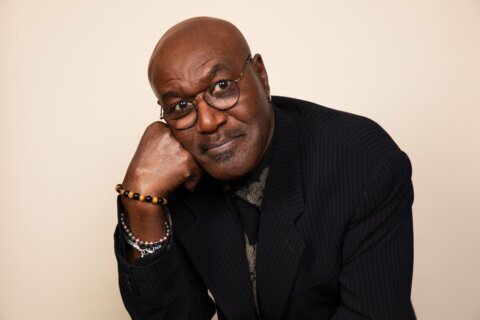Over the past few years, the term “woke” has entered our lexicon to describe humanity’s awakening to societal injustices that we previously took for granted.
Now, it’s the title and concept of the new Hulu sitcom “Woke,” blending biting social commentary with a high-concept premise of magical realism in an urban world.
Based on co-creator Keith Knight, the series follows Black cartoonist Keef Knight, whose comic strip “Toast & Butter” becomes nationally syndicated. One day, he is wrongfully accosted by police, causing woozy vision and ringing ears that unlock a new “superpower” of hearing inanimate objects calling out racial injustices around him.
Your enjoyment of the series hinges on lead actor Lamorne Morris, who many will remember as Winston on the FOX sitcom “New Girl” (2011-2018). In “Woke,” he’s similarly charming as he charts a distinct character arc, from wanting to “keep it light” and avoid politics, to growing a social conscience whose “third eye” is no longer blind.
He’s often the straight man for his two roommates: Blake Anderson (“Workaholics”) plays the white hipster Gunther, who hatches a scheme to sell cocaine as a medicinal powder, while T. Murph (“Key & Peele”) plays the comically cynical Clovis, who warns him against picking up a lost wallet on the sidewalk (think Lil Rel Howery in “Get Out”).
The ensemble also features a trio of talented actresses in Alvina August (“The Good Doctor”) as his girlfriend Trina, Rose McIver (“iZombie”) as new flame Adrienne, and Sasheer Zamata (“I Feel Pretty”) as journalist Ayanna, who calls out his lack of “wokeness” during a “theme stated” moment before the fantasy catalyst is triggered.
Once the magical spark happens, you’ll either go with the premise or not. Hopefully you do, so you can enjoy Nicole Byer and Eddie Griffin as talking 40-ounce liquor bottles, J.B. Smoove as a talking marker, Keith David as a talking Bible, and Cedric the Entertainer as a talking trash can urging a Mookie toss like “Do the Right Thing.”
It’s just one of many pop culture references from “Black Panther” to “Fruitvale Station,” “Creed” to “Driving Miss Daisy.” There’s even a brief mention of the coronavirus during the penultimate bus episode, which was likely dubbed in during post production.
Oddly, the writers seem to abandon the concept of talking objects in the middle of the season, focusing instead on the relationships between the human characters. This is actually more compelling, but it does feel a little uneven when the talking objects suddenly return down the stretch. It lacks the consistent commitment to the magic.
Thankfully, “Woke” is self-aware of its own silliness. You’re not exactly trying to win Emmys when you’re mining laughs from Oscars — Oscar the Grouch, that is. There’s a fine line between goofy and serious — after all, “woke” is an anagram for “Ewok” — but the show does its best to tackle pressing issues from racial profiling to police brutality.
Along the way, Black barber shops are gentrified by white folks in a nod to co-creator Marshall Todd’s script for “Barbershop” (2002); Keef’s PR team intentionally lightens his skin on a press poster (“I look like Sammy Sosa!”); and strangers on the bus can’t believe he drew “Toast & Butter” because they figured he’d be “taller” (ahem, whiter).
These bits mostly work, although there are moments where the acting feels forced with on-the-nose dialogue. Do people really talk this openly about racism? Eh, that might have been a fair critique 10 years ago during our blissful naivety of a “post-racial society,” but in 2020 America, you damn right people talk that openly about racism.
Undoubtedly, your political affiliation will color your response. It takes an open mind to appreciate social satire. If you roll your eyes at the notion of “white privilege,” you’re probably not gonna like this show. Nothing in this review will convince you otherwise.
However, if you believe there is systemic racism to be rooted out, you will cheer that someone is speaking hard truths like “Blindspotting” or “The Last Black Man in San Francisco,” even when the deeper meanings become clouded by raunchy TV-MA gags.
In the end, it might not be the funniest show you’ve ever seen, but it’s a lighthearted watch at a brisk 30 minutes over eight episodes that fly by. It feels fresh with a “Basquiat” vibe, hip-hop soundtrack and a colorful backdrop of San Francisco.
Heck, you might even become “woke.” Just don’t start talking to trash cans.









